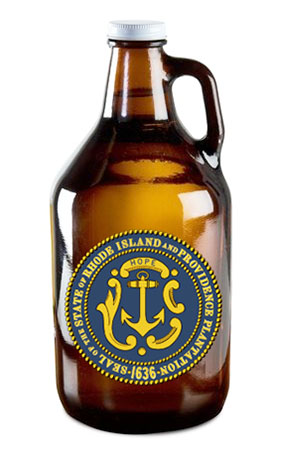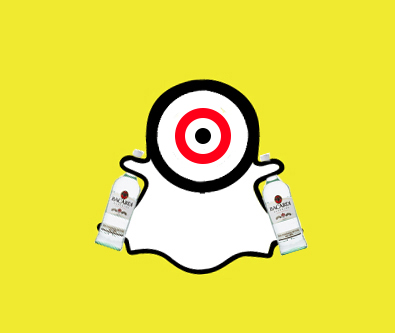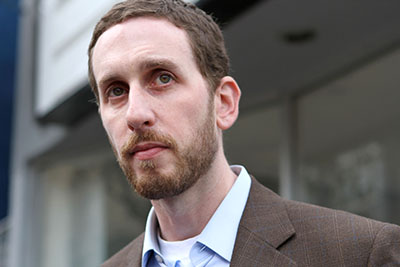In the Doghouse
Rhode Island Legislators Not Just Drunk On Power
Reports of rampant alcohol use in the chamber surface amidst efforts to repeal sales tax on beer.
 The Rhode Island legislature is as likely to engage in libations as deliberations, according to an interview given by freshman representative Moira Walsh to WPRO News. "You cannot operate a motor vehicle when you've had two beers," she said, "but you can make laws that affect people's lives forever when you're half in the bag?"
The Rhode Island legislature is as likely to engage in libations as deliberations, according to an interview given by freshman representative Moira Walsh to WPRO News. "You cannot operate a motor vehicle when you've had two beers," she said, "but you can make laws that affect people's lives forever when you're half in the bag?"
Despite dismissive comments from House Majority Leader K. Joseph Shekarchi, the reports jibe with patterns among other lawmakers. California briefly had to provide free transportation to its legislators after a rash of DUI arrests. In Washington, D.C., nearly half of all congressional staff drink at social events as part of the job. As one respondent put it, "Parties are work." Only two states—Idaho and Oklahoma—forbid lawmakers to drink on the job.
This culture of wetting beaks and signing bills may help explain why Rhode Island is considering repealing its beer tax, citing business lost to neighboring Massachusetts. Massachusetts has no beer sales tax, making Representative Blake Filippi have nightmares of people running to the border to stock up on cases. But it seems Rep. Filippi is not having the right nightmares—according to SAMHSA, Rhode Island has the fourth highest rate of underage binge drinking in the country, far in excess of the national rate (though much-envied Massachusetts isn't far behind). Meanwhile, 92.6% of Rhode Islanders in need of alcohol abuse treatment never receive it.
Research has shown time and time again that a very simple and straightforward way to both reduce consumption and fund treatment is to levy greater alcohol taxes. "Beating Massachusetts," on the other hand, has little demonstrable effect on public health. The need to raise, not lower, alcohol taxes should be evident to Rep. Filippi and his colleagues. We here at Alcohol Justice cannot imagine what could be clouding their judgment.
READ MORE about the power of smart alcohol tax policy.
Kid-Centered Snapchat Douses Memories With Rum
 The cellphone app/social networking service Snapchat is known for two things: (1) a revolution in facial detection software that allows users to creatively tweak photos to turn friends into puppies, royalty, or astronauts to creatively tweak user photos, and (2) an almost miraculous ability to acquire and keep a teenage audience. Bacardi, on the other hand, is known for one thing: rum. Being neither a software developer nor a product that can legally be consumed by teenagers, Bacardi should have no business partnering with Snapchat.
The cellphone app/social networking service Snapchat is known for two things: (1) a revolution in facial detection software that allows users to creatively tweak photos to turn friends into puppies, royalty, or astronauts to creatively tweak user photos, and (2) an almost miraculous ability to acquire and keep a teenage audience. Bacardi, on the other hand, is known for one thing: rum. Being neither a software developer nor a product that can legally be consumed by teenagers, Bacardi should have no business partnering with Snapchat.
But that’s exactly what they did, introducing a promotion with electronic music group Major Lazer that allowed Snapchat users to, as according to Adweek, “appear with flashing lights and Bacardi bottles around their head or put parts of their face into an orange vortex.” There is no question to whom this promotion is aimed. Snapchat is often considered the premier social network for adolescents. Fully 23%--almost a quarter—of their users are under 18, and another 37% are 18-24, according to research compiled at Statista. By launching this sponsorship, Bacardi knew they would bypass the already ineffective voluntary measures meant to limit alcohol marketing to underage audiences.
Bacardi is not alone in this knowledge. Texas A&M researchers found that the social media accounts of underage users receive hundreds of advertisements for alcoholic beverages. “Age gates” requiring voluntary admission of date-of-birth are comically and transparently ineffective; even when companies employ them properly, the very idea of age-restricted content becoming available incentivizes teens to put in false dates of birth. Among the ineffective handshake agreements used by the industry, ads are only supposed to be placed on platforms on which over 71.6% of the audience is above legal drinking age. It seems arguable that Snapchat has hit this threshold, which hasn’t scared off AB InBev (Bud), Pernod Ricard (Jameson), Constellation (Modelo and Svedka), and now Bacardi from launching campaigns.
Two things make Bacardi’s blitz even more pernicious. First, the Major Lazer partnership means that simply being a music fan may turn underage Snapchat users into amplifiers for liquor marketing. (Come for the music, stay for the message that you can’t enjoy the music without getting wrecked.) Second, the filter was only available directly on Snapchat for a limited time, after which users had to get the QR code from Facebook—meaning Bacardi would be able to scrape a second, information-rich site for data on visitors.
Voluntary marketing restrictions have long proven a joke in limiting predatory marketing tactics. But Bacardi, in its cross-marketing, cross-platform efforts that blatantly disregard the demographic being exposed to its product, has upped the ante in exploitation and predation. It is long, long past time for Big Alcohol to be reigned in, because they are constantly seeking new customers, and they know perfectly well where to find them.
READ MORE about how social media helps Big Alcohol network with kids.
READ MORE about the joke that is industry self-regulation.
4 A.M. Bar Bill Plays CA for Fools
With Dirty Tricks and Deceit, Sen. Wiener and Allies Sneak SB 384 Through Committee
 This is what it takes to shove an ugly bill through the California Assembly GO Committee:
This is what it takes to shove an ugly bill through the California Assembly GO Committee:
- engage in back-office sessions to create over a dozen hackneyed amendments to distract from official analyses revealing all the weaknesses of your bill.
- throw ethics and responsible governance aside by changing the bill at the last minute, and voting on it before those changes can be seen by the public.
- schedule a vote for the day after a national holiday, hoping your critics will be too tired to show up and oppose it.
- ignore and distorting over 40 years of global, peer-reviewed public health research on the harms of your bill.
- value the desires of lobbyists and industry players over the lives and health of your constituents.
On July 5th, supporters of SB 384—State Senator Scott Wiener’s bill to allow bars to stay open until 4 a.m.—passed the bill from committee. They did so despite a long line of local government, public health, law enforcement, and addiction services professionals speaking out against it. None of the other bills up for vote faced even a tenth of the opposition; none threaten to ramp up the levels of alcohol-induced harm and death the way SB 384 one does.
Senator Wiener and his allies should be ashamed. Extending last call times increases drinkers’ overall consumption, it adds fatigue to dangerous driving, and worst, it lets cities avoid responsibility for their own worst decisions. Its proponents extolled the “local control” aspects of the bill, but urban 4 a.m. entertainment zones will emanate dangerously intoxicated drivers into the surrounding suburbs. The city gets the tax revenue while the outlying communities get to scrub the blood off the highway.
When introducing his arguments, the Senator indicated that he knew the pain of dangerous driving first-hand, having lost an aunt in a DUI crash when he was 6 years old. Yet he immediately dismissed over 40 years of peer-reviewed medical research from multiple countries showing that last-call times affect automotive deaths. Instead, he brandished his own "study," one of such appalling quality—among other issues, he claims it "shows there is no correlation between last-call times and fatal accidents" when it makes no effort to show what happens when a state changes its last-call times*—that trying to publish it would end a scientist's career. Lucky for him, he is in politics; this is less lucky for the real lives that could be lost from this policy.
Worse, Senator Wiener and the Committee need to be held accountable for why it was necessary to unleash a flood of amendments up until the minute the bill was voted upon. The text of those amendments was not released to the public, leaving the open discussion one of shrugs and question marks. The people of California spoke out explicitly against this sort of legislative double-dealing when they voted for Prop 54, which requires that legislative bills be viewable by the public before they are passed. But since this only moved SB 384 out of committee, not onto the Assembly as a whole, Wiener felt he could ignore the spirit of transparency in favor of expedience. The sheer number of amendments, the rush job, and the cover-of-darkness nature of the hearing all suggest this bill could prove very unpopular.
The question is, will the problems be evident before the early morning wreckage mounts? After all, the bill can still be stopped in Assembly Appropriations, the general Assembly, or on the Governor’s desk. It could even be pulled by Senator Wiener, should he come to his senses. After all, either he feels pangs of regrets now for failing his voters, or feels those pangs in a couple years… for getting them killed.
*Note for our wonkier readers: Wiener's non-study "study" not only does not disprove correlation, it does not even include a correlation statistic. It is just an Excel spreadsheet with a cross-sectional presentation of different fatal crash rates in different states, and their last-call times. Not only does there seem to have been no effort to do a true causal analysis, there wasn't any analysis of any kind performed; we have no idea what the rates could be confounded by, nor what happens when you look at other indicators of alcohol harm and motor vehicle crashes. The data are not even sourced; while we like to think Sen. Wiener has the dignity to not actually make things up out of whole cloth, dignity certainly has not stopped him from exploiting the dead.
TAKE ACTION to stop the 4 a.m. bar bill.
READ MORE about the hazards of extended last call times.
More Articles ...
Help us hold Big Alcohol accountable for the harm its products cause.
| GET ACTION ALERTS AND eNEWS |
STAY CONNECTED    |
CONTACT US 24 Belvedere St. San Rafael, CA 94901 415-456-5692 |
SUPPORT US Terms of Service & Privacy Policy |


